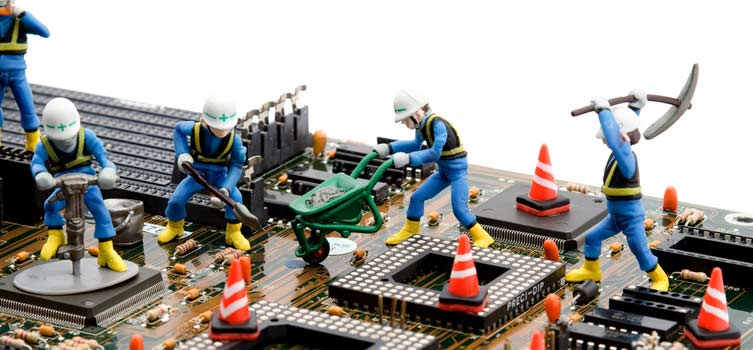Computer Maintenance Tips

Proper maintenance
will keep a home computer running well. A few minutes spent on tests and
updates can avert frustrating crashes and sluggish performance.
Follow these
computer maintenance tips:
1.
Install antivirus security
software and set up a regular sweep. Your computer may
have come with a pre-installed antivirus system, but be sure you have one and
it is set up to regularly search for and destroy malware on your machine. There
are plenty of quality free programs such as Symantec Endpoint protection, Avast
or Avira available if you need them, but no matter what, it is vital to protect your computer against viruses.
2.
Consistently back up stored
data and create restore points. Be prepared for
the worst by regularly backing up your files on the hard drive or an external
hard drive to be extra safe. It is likely that your computer came with a
program to create system restore points (System Restore on Windows computers and
Time Machine on Macs) that save a complete version of your computer that you
can return to later. This is very helpful if a virus has completely ruined your
machine and you can’t find out how to get rid of it. You simply go back to
before the virus was introduced. Be sure to set up the programs to
automatically create regular restore points or you can install third party
programs to do this as well.
3.
Keep your system and programs
updated. Software developers regularly put out updates
for everything from your operating system to programs you use regularly. These
updates make sure your software is running top notch, but updates also
regularly plug security holes so you will want to install updates as soon as
you are notified of them to protect yourself against malicious viruses and spyware.
4.
Uninstall unused programs and
files and regularly de-fragment your hard drive to keep your computer from slowing down. The more free space your
computer has on the hard drive, the faster it will run so if you have old files
you don’t need or old programs you don’t use, clear them out. You will also
want to regularly do a disk cleanup to clear out junk files that get downloaded
by your browser or temporary program files that take up space. Also, regularly
de-fragmenting your hard drive will keep your computer running smoothly. Your
computer likely has a tool you can use to set up a routine de-fragmentation.
5.
Practice safe browsing habits to avoid viruses and phishing scams. Much of the
malicious software that wrecks computers finds its way to your device through
your own unknowing clicking. Protect yourself by always reading the web address
before you click a link in a search result, never clicking through on a
suspicious popup window, never giving out login information even if the
requester claims to be from a reputable company and never opening an email or
email attachment you are unsure of.
6.
Clean out dust and grime that accumulates outside and inside the machine. Built up dust can
cause overheating and is to blame for lots of computer breakdowns. This is
simple to avoid by regularly using a small vacuum to remove dust and then spray
with compressed canned air. For tower-style desktops, you will want to remove
the side panel to carefully clear the dust inside the tower every three to six
months for optimum performance.
7.
Plug your desktop into a surge
protector. Electric storms can irreparably damage
sensitive components inside your computer. The simplest way to protect it from
power surges is to plug it into a surge protector.

0 comments:
Post a Comment